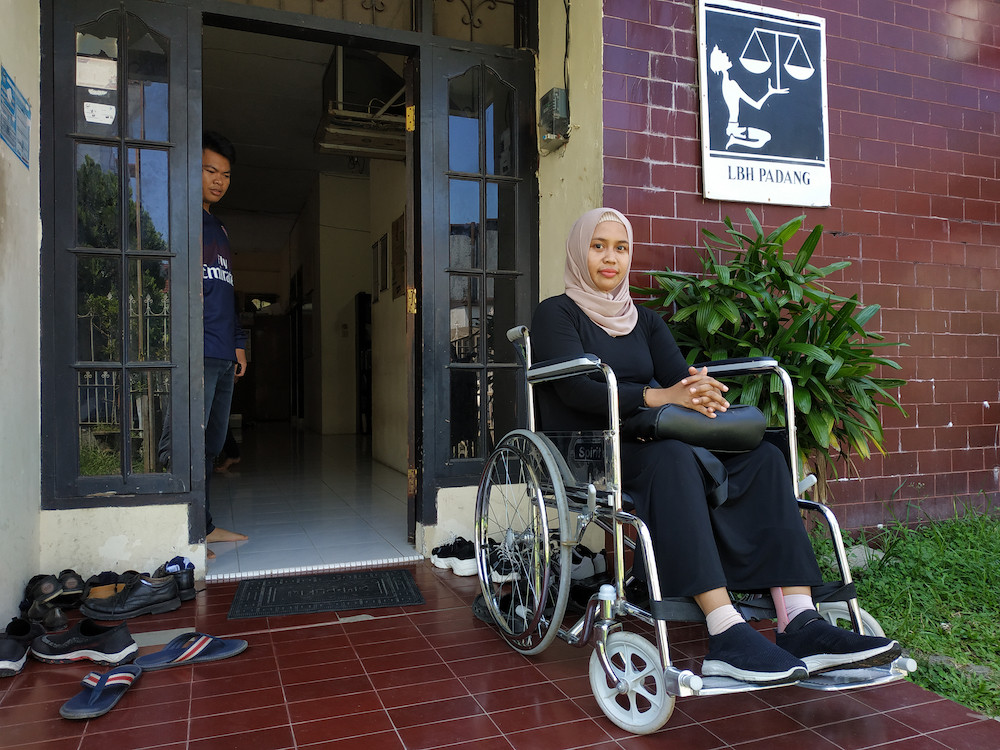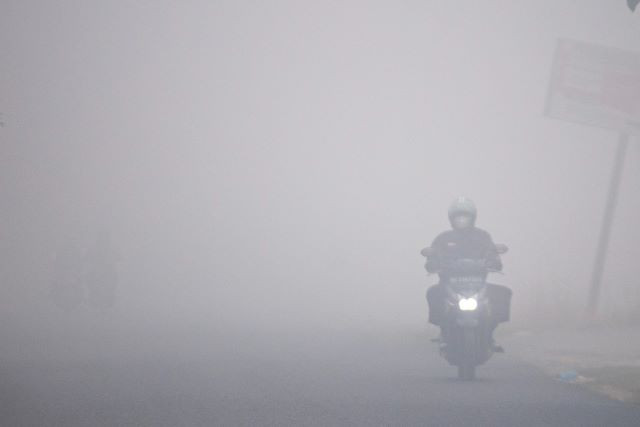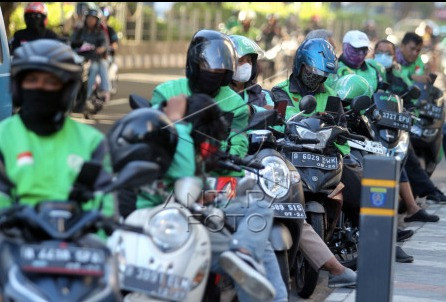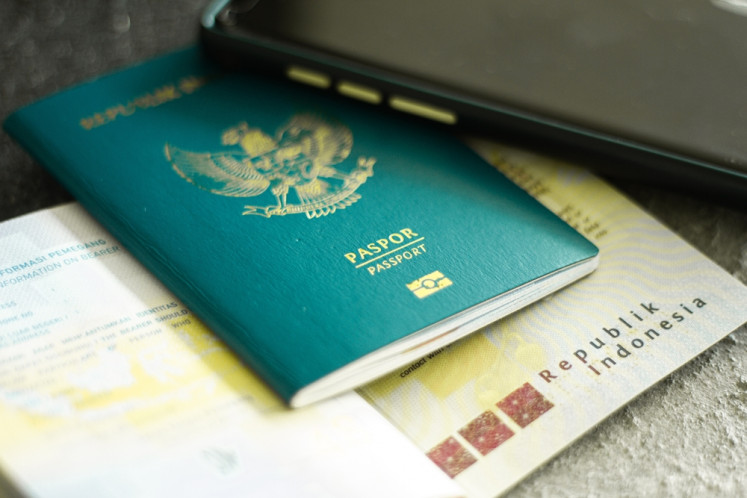Civil society endowment fund: A call for collaboration
The absence of a unified national database has limited disabled people’s access to the US$49.63 billion COVID-19 emergency fund provided by the government.
Change Size
 Dentist Romi Syofpa Ismael poses for a photo at the office of the Padang Legal Aid Institute. Romi, who has been on duty in a remote area in West Sumatra for the past four years, is having trouble securing permanent employment because of her disability. (JP/Syofiardi Bachyul Jb)
Dentist Romi Syofpa Ismael poses for a photo at the office of the Padang Legal Aid Institute. Romi, who has been on duty in a remote area in West Sumatra for the past four years, is having trouble securing permanent employment because of her disability. (JP/Syofiardi Bachyul Jb)
A
cross the globe, we are experiencing the unprecedented. The world we knew before COVID-19 has been permanently upended. Our lives are forever split in two: before coronavirus and after. In these extraordinary times, philanthropy must respond with extraordinary measures.
The Indonesian organizations on the frontlines that champion essential workers and build the systems that will be central to an equitable recovery are at risk. Civil society is the central pillar of Indonesia’s democracy and is at the forefront of the work to reduce the inequality that threatens the future of the country.
Though being impacted themselves, our civil society organization (CSO) partners continue to work tirelessly to serve the community they work with such as disability communities, laborer, farmers and indigenous people, women and children.
Konsorsium Pembaruan Agraria (Consortium for Agrarian Reform) for example, has initiated a solidarity-based economic action that connects small-scale food producers (farmers, indigenous communities, local farmer organizations, unions) with priority consumers. Current priority consumers include laborers, urban poor, fishermen and informal workers who were affected by COVID-19. By connecting producers directly to priority consumers, the high-cost food distribution is reduced, thus, enabling vulnerable communities to get what they need.
Aside from farmers and laborers, people with disabilities in Indonesia are also among the most impacted population groups and they are not in the same boat when it comes to accessing relief and social protection assistance programs.
Based on the latest survey, in 2015 there were 21.84 million people with disabilities in Indonesia, equivalent to 8.56 percent of the Indonesian population. The absence of a unified national database has limited disabled people’s access to the US$49.63 billion COVID-19 emergency fund provided by the government.
The National Coalition for the Implementation of the Disability Law, of which our grantee the Indonesian Association of Women with Disabilities (IAWD) is part of, has decided to enhance their advocacy on the need for national disability data. IAWD will help develop a data collection system that will involve the national and district/city governments, village administrations as well as disability organizations and communities in identifying and registering people with disabilities into the population and civil registration system, which would provide them with a citizen ID number.
In pursuing this work, IAWD is working together with the National Development Planning Agency (Bappenas), the Social Affairs Ministry and the Home Ministry. This collaboration will be a big step in realizing the integration of disability data at the local and national levels to ensure more effective targeting of social and economic protection programs and the exercise of civil rights for people with disabilities.
Another CSO partner, Kemitraan, is working with the Cooperatives and Small and Medium Enterprises Ministry to develop a guide on how to safely run a business, while Himpunan Serikat Perempuan Indonesia (Hapsari) is working to educate the public on COVID-19 related gender-based violence against women, children and persons with disabilities.
As we can see, civil society organizations in Indonesia are significant contributors in responding to social and economic inequality and the negative impacts of the pandemic. However, because of COVID-19, civil society faces an overwhelming need paired with an existential threat. Many organizations do not have cash reserves and already, furloughs and layoffs are hitting the sector — hard. The world’s vital nonprofits are in jeopardy.
If we do nothing, the economic toll, alone, will be devastating. Losing civil society organizations would hurt Indonesia’s economy as well as its social and political fabric. Our challenge is not to save any particular organization; it is to save the soul of civil society itself.
The Ford Foundation recognizes that this once-in-a-century crisis — and the overwhelming need to emerge from it with a more just and equitable society — requires a once-in-a-century response.
For the first time in our foundation’s history, we have authorized $1 billion — financed through the sale of social justice bonds — to help stabilize and strengthen civil society in the 10 regions where we work around the globe. These funds are in addition to our annual grantmaking budget and will be dispersed over the critical years of 2020 and 2021.
Together with the government and the private sector, we must assess the damage caused by inequality laid bare and exacerbated by the pandemic. And as we fund these vital recovery efforts, we must reimagine our systems, our economy and our culture for the better.
We have heard from civil society organizations about their concerns around the sustainability of future funding. And in response, we are exploring how to use the newly released funds to create an Endowment Fund for Civil Society strengthening in Indonesia. The goal would be to increase the institutional capacity and financial resiliency of the organizations that are vulnerable due to the impact of COVID-19.
It is our hope that the fund will support the long-term growth of civil society organizations by helping to strengthen institutional governance and build financial independence. The fund will support efforts to increase and diversify funding sources from donor agencies, develop revenue from services to third parties, create social enterprise business units and conduct public fundraising.
For our vision to be successful we need the partnership of multiple actors to help create and support the fund and empower Indonesian civil society. We are inviting our partner philanthropic institutions, bilateral and multilateral donors, the private sector as well as the government to cocreate this critical infrastructure to develop the capacity of civil society organizations. Only together will we recover from the pandemic and establish a resilient and resourceful Indonesia.
We recognize the need to act with fierce urgency to support our nonprofit partners as they support the individuals and communities hit hardest by the impacts of this pandemic.
***
Darren Walker is the president of the Ford Foundation and Alexander Irwan is the regional director of the Ford Foundation in Jakarta.









